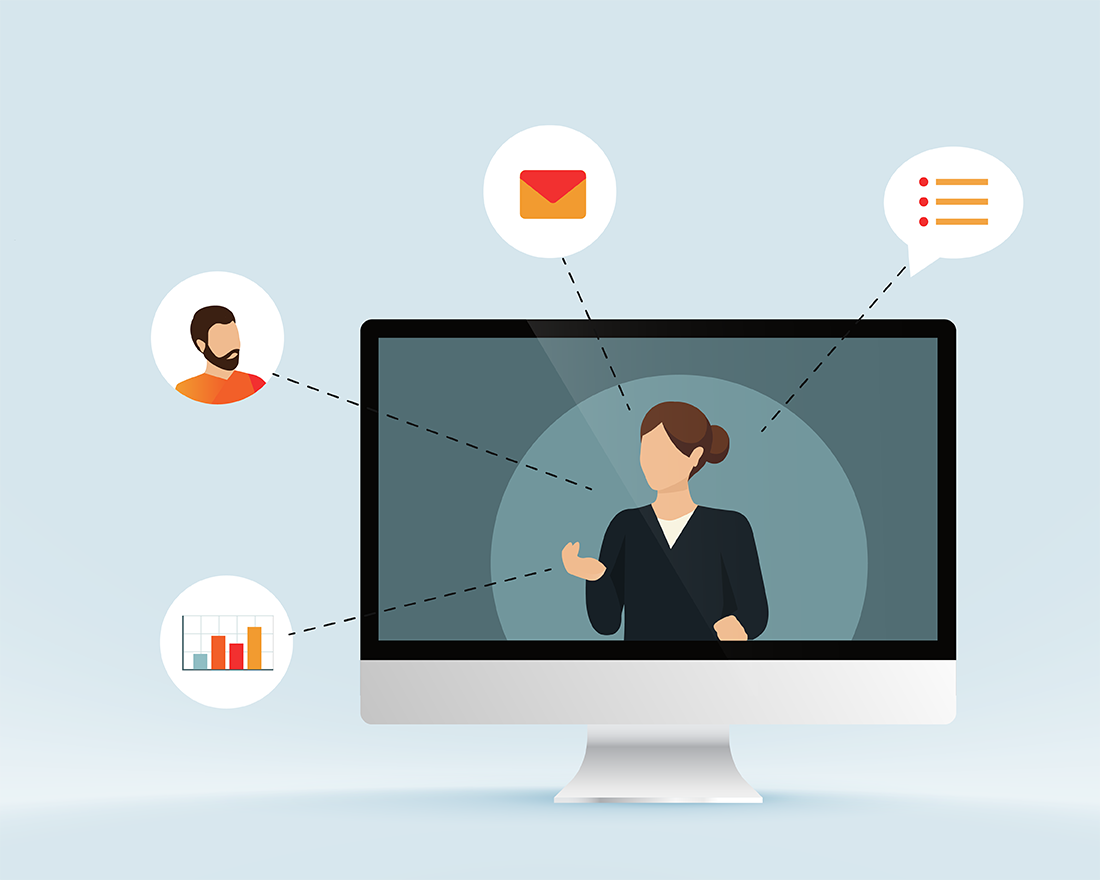
Webinars have become essential for businesses looking to connect with their target audience, educate them about their products and services, and build trust and credibility. Whether you’re a small business owner, a marketer, or a salesperson, a well-planned webinar can help you achieve your goals and drive results for your organization.
In this blog, we’ll walk you through planning a successful webinar, including key considerations for each stage of the process and tips for making your webinar successful. Whether new to webinars or an experienced host, you’ll find valuable insights and advice in this guide.
Planning Stage
The first step in planning a successful webinar is to define your target audience. This will help you determine the message you want to convey and the goals you want to achieve with your webinar. Your target audiences, such as B2B companies, startup owners, or HR managers, should be specific. Understanding their needs and pain points will also help you create content that resonates with them and addresses their challenges.
Once you’ve defined your target audience, it’s time to determine your webinar goal. What do you want to achieve with your webinar? Do you want to educate your audience, generate leads, or build brand awareness? A clear goal will help you create a focused and effective webinar that delivers real results.
Choosing the right webinar platform is another critical step in the planning stage. There are many webinar platforms available, each with its features and benefits. Factors to consider when choosing a platform include ease of use, cost, reliability, and the ability to integrate with your existing marketing and sales tools. Some popular webinar platforms include Zoom, GoToWebinar, and Webex.
Finally, it’s important to determine the right date and time for your webinar. Consider factors such as time zones, work schedules, and the availability of your speakers. Promoting your webinar effectively is also key to ensuring high attendance, so use social media, email marketing, and other channels to reach your target audience and get them excited about your webinar.
Preparation Stage
Once you’ve completed the planning stage, it’s time to prepare for your webinar. The first step is to create a detailed agenda. This should outline the topics you’ll cover, the time you’ll allocate to each section, and any other important details. A clear agenda will help you stay focused and ensure your webinar runs smoothly.
Developing a compelling presentation is another critical step in the preparation stage. Your presentation should be engaging and informative, providing your audience with valuable insights and information. Consider using visuals, animations, and other multimedia elements to help illustrate your points and keep your audience engaged.
Choosing the right speakers is another important consideration in the preparation stage. The right speakers can bring credibility, expertise, and authority to your webinar, helping you achieve your goals and deliver a high-quality experience for your audience. When selecting speakers, consider their expertise, experience, and speaking style. Be sure also to prepare your speakers for the webinar, providing them with clear guidelines and resources to help them deliver a great presentation.
Finally, promoting your webinar is key to ensuring high attendance and maximizing your results. Use social media, email marketing, and other channels to reach your target audience and create excitement around your webinar. Consider offering incentives, such as early bird discounts, to encourage registration and participation.
Delivery Stage
The delivery stage is where the magic happens! Hosting a successful webinar requires preparation, practice, and attention to detail. Here are some tips to help you deliver a great webinar:
- Start on time: Begin your webinar promptly, as scheduled, to show respect for your attendees’ time.
- Engage your audience: Encourage interaction and engagement by asking questions, conducting polls, and providing opportunities for attendees to ask their own questions.
- Keep it focused: Stay focused on your agenda and the goals you want to achieve with your webinar. Avoid straying from the topic or going off on tangents.
- Keep it interesting: Use visuals, animations, and other multimedia elements to keep your audience engaged and interested.
- Be professional: Be well-prepared, organized, and professional in your delivery. Use clear, concise language and avoid distractions, such as background noise or interruptions.
Conclusion
In conclusion, planning and executing a successful webinar requires preparation, focus, and attention to detail. Whether you’re a B2B marketing agency or a webinar marketing agency, you can use these tips to create a successful webinar that delivers value to your target audience and drives results for your organization. By following the steps outlined in this guide, you’ll be well on your way to delivering a high-quality webinar that achieves your goals and drives results for your business.
FAQs
Q: What are the key elements of a successful webinar?
The key elements of a successful webinar include:
- Defining your target audience.
- Determining your webinar goals.
- Choosing the right webinar platform.
- Preparing a detailed agenda.
- Creating a compelling presentation.
- Selecting the right speakers.
- Promoting your webinar effectively.
- Delivering a focused, engaging, and professional webinar.
Q: What are some popular webinar platforms?
Some popular webinar platforms include Zoom, GoToWebinar, and Webex.
Q: How can I promote my webinar effectively?
Promoting your webinar effectively involves using social media, email marketing, and other channels to reach your target audience and create excitement around your webinar. Consider offering incentives, such as early bird discounts, to encourage registration and participation.
Q: What should I consider when choosing speakers for my webinar?
When choosing speakers for your webinar, consider their expertise, experience, and speaking style. Be sure to prepare your speakers for the webinar, providing them with clear guidelines and resources to help them deliver a great presentation.
Q: How long should a webinar last?
The length of a webinar can vary, but most webinars last between 45 minutes to an hour and a half. It’s important to keep your webinar length in mind when planning your agenda and presentation, and to ensure that you provide enough time for attendees to ask questions and engage with your content.
